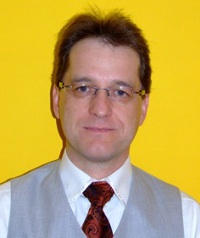Pozvaní prednášajúci
Zbyněk Falt, Ph.D., (Google): Building a Computing System for the World’s Information

Google’s mission is to organize the world’s information and make it universally accessible and useful. Obviously, Google has to deal with many problems to successfully fulfill this mission. This talk will describe some of these problems, mainly those related to the storing of the information and its efficient and scalable processing and querying. The first part of the talk will be focused on the computing platform used in Google and its hardware design philosophy. Additionally, it will explain why to build warehouse-scale computer using comodity components instead of more reliable ones. The second part will focus on software infrastructure. It will describe the architecture of Google filesystem, BigTable, Chubby, MapReduce etc. and how they fit together when solving real-life problems.
prof. Ivan Zelinka (VŠB-TUO): Evolutionary Algorithms - Selected Topics

This keynote is focused on mutual intersection of interesting fields of research: bio-inspired algorithms, deterministic chaos and complex systems. The first one will discuss main principles of bio-inspired methods, its historical background and its use on various examples including real world ones. Examples include plasma reactor control, optimal signal routing in the network of portable meteorological stations, complex system design as antenna design, nonlinear system and controllers design and more. Also its use on deterministic chaos control with focusing on simple chaotic systems (logistic, Hennon,…) as well as CML systems exhibiting spatiotemporal chaos will be mentioned and explained. The second part will discuss use of deterministic chaos instead of pseudo-random number generators inside evolutionary algorithms with application on well known evolutionary algorithms (differential evolution, PSO, SOMA, genetic algorithms,..) and test functions. Mutual comparison will be presented, based on our research. Also will be discussed question whether evolutionary dynamics really need pseudo- random numbers. At the end will be mentioned a novel approach joining evolutionary dynamics, complex networks and CML systems exhibiting chaotic behavior. Reported methodology and results are based on actual state of art (that is a part of this tutorial) as well as on our own research.
